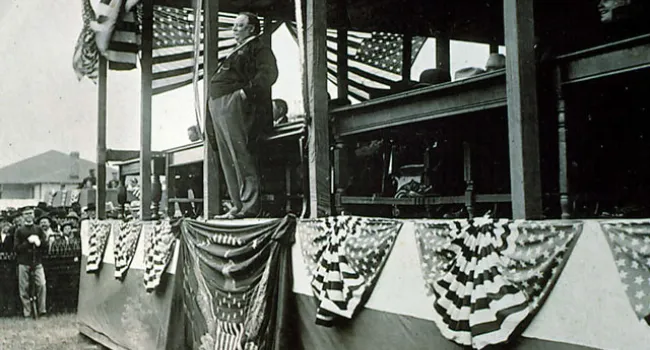
The equal suffrage movement of women demanding the right to vote developed slowly in South Carolina. This parade in Aiken on January 26, 1917, claimed to be "The First Suffrage Parade in South Carolina." The 19th amendment to the U.S. Constitution was adopted in 1920, stating that "the right of citizens of the United States to vote shall not be denied or abridged by the United States or by any State on account of sex."
Courtesy of the South Caroliniana Library.
Standards
- 5.2.E Evaluate multiple perspectives from the period, including the economic, political, and social impacts of World War I, the 1920s, the Great Depression, and the New Deal using primary and secondary sources.
- This indicator was designed to encourage inquiry into how new state and federal Progressive legislation affected individuals and businesses in South Carolina and the U.S. The indicator was also designed to promote inquiry into the new perspectives that emerged regarding social and political change.
- 5.2.CX Contextualize the post-war economic climate on the cultural landscape throughout the United States and South Carolina.
- This indicator was developed to encourage inquiry into how the former planter class, African Americans, women, and others adjusted to, gained, lost, and/or regained position and status during Reconstruction. This indicator was also written to foster inquiry into how South Carolina worked with a stronger federal government and expanding international markets.




